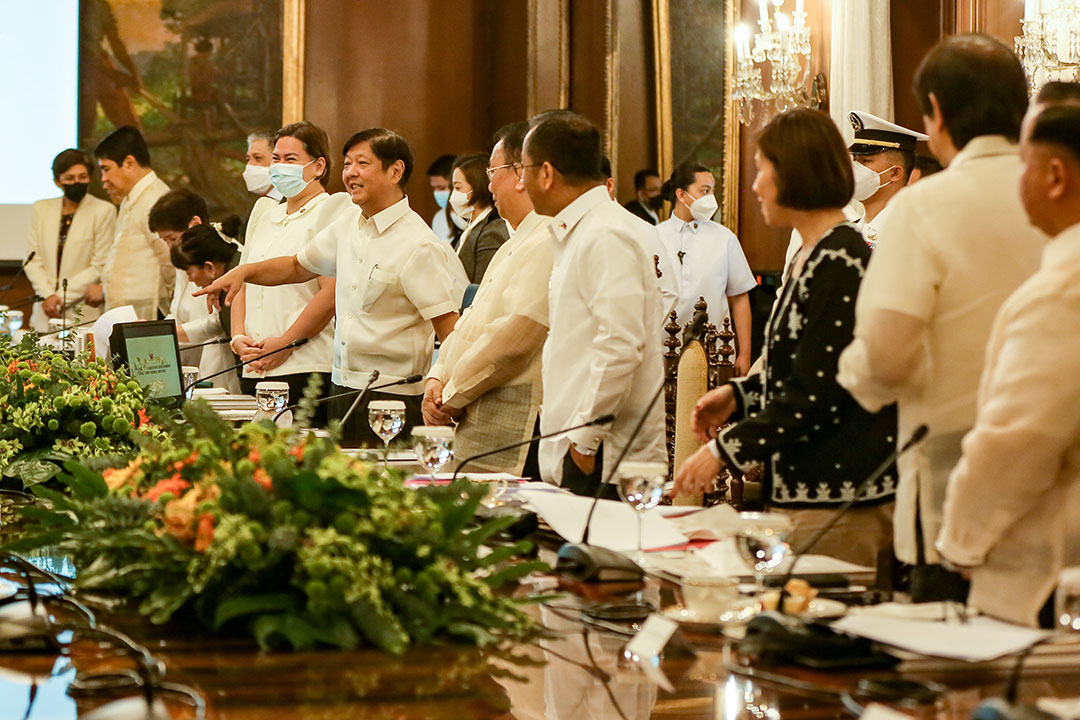
Yellow Pad
By Filomeno S. Sta. Ana III

The 4.3% growth in the second quarter of 2023, being below target, disappoints. We would have expected the economy not only to bounce back after the pandemic but also to sustain high growth of 6% and above.
Government officials dismiss the weak second quarter performance and regard it as a brief interruption of growth. For instance, Economic Planning Secretary Arsi Balisacan is confident that despite the unsatisfactory second quarter growth, the economy can still grow up to 7% in 2023.
However, independent analysists not only from the private sector but also from the government’s policy think tank, the Philippine Institute for Development Studies, have downgraded their forecasts to less than 5% growth in 2023. Worse, they worry over a growth rate being below 5% in the medium term, unless major internal and external constraints are overcome. (See Romeo Bernardo, “A 5% economy?” which BusinessWorld published on Aug. 28.)
Only interrupted by the pandemic years, the Philippine economy since 2012 has grown by 6% and above. This remarkable growth trend can be attributed to a series of transformative reforms, principally on increasing revenues and spending for human development and infrastructure, lowering prices, and promoting competitiveness and productivity. As a result, the poverty rate dramatically dropped from 21.6% to 16.6% in a short period of five years, from 2015 to 2020.
But the pattern of high growth and accelerated poverty reduction was broken by COVID-19. The pandemic induced a deep recession, which in turn worsened hunger and poverty. The eventual waning of the pandemic and the end of the emergency made the economy bounce back. Growth rate in 2022 was 7.6%. This rebound was expected, explained by Milton Friedman’s plucking model which states that an economy “plucked down” during a cycle will later recover strongly and quickly. That is, the deeper the recession, the stronger the recovery will be.
So, the post-pandemic challenge is not having the recovery per se. The main challenge is how to overcome the binding constraints to sustain high growth. Among the major macroeconomic constraints are the narrow fiscal space and the persistent high inflation.
The narrow fiscal space is manifested in the public debt-to-GDP ratio of 60.9% and a National Government budget deficit of 7.33% in 2022. These levels are high under present circumstances and must be gradually reduced. But at the same time, government must increase expenditures for the social sector — on universal healthcare and education — and maintain a high level of spending for infrastructure towards a green economy.
The fiscal challenge means rationalizing the government budget and reducing waste or inefficiency (for example, reforming the non-transparent confidential funds and other politically motivated spending items). Further, government must overhaul the overgenerous pension system for the military and uniformed personnel by requiring them to contribute to their pension fund.
The fiscal challenge likewise means increasing the tax effort. Widen the tax base by further narrowing exemptions on value-added tax (VAT) and strictly limiting the exemption to products consumed by the poor. Go after digital transactions that have stayed under the taxation radar.
Moreover, impose higher tax rates on consumption goods that harm society (e.g., alcohol and tobacco products). These tax measures are popular and yield significant revenues.
Inflation, on the other hand, persists despite the aggressive interest rate policy. The successive interest rate hikes have contributed to taming inflation expectations and lowering the inflation rate. However, increasing interest rates do not directly address the supply problem. We face a shortage in the supply of food, particularly rice, which is the main driver of inflation. The country has no choice but to secure food (and rice) imports to meet growing demand, which local farmers could not meet. The problem has become graver in light of the announcement of India, the world’s largest exporter of rice, to ban the export of non-basmati rice and broken rice.
In a word, reforms cry out to be done. Sadly, the government has been slow in pursuing the relevant reforms. Worse, the reforms being introduced are being diluted. Worst of all, there are attempts to reverse major reforms secured in the past.
Take the rationalization of VAT. The administration wants the law on fiscal incentives amended, with the intent of returning the VAT exemptions for firms located in economic zones that do not create inputs for export goods.
Or the mining fiscal regime: The bill that the House Speaker is actively endorsing is revenue eroding. To point out one problem: The royalty rate for projects within mineral reservation will be reduced from 5% of gross output to 3%.
On the proposed reform of the pension system for the military and uniformed personnel, Defense Secretary Gilbert Teodoro opposes it and wants the Armed Forces to be excluded from it.
On food policy, President Ferdinand Marcos, Jr. supports the review and amendment of the Rice Tariffication Law, which has facilitated the entry of rice imports to alleviate supply.
And recently, the administration has issued Executive Order No. 39 that sets price ceilings on rice. The use of price control must be circumspect and judicious. It is an inappropriate and clumsy intervention under present conditions. This will in fact exacerbate the problem. Rice will disappear from the formal market, and a black market demanding higher prices will flourish.
The poor mainly suffer. A far superior intervention is to further ease import restrictions, even temporarily, and provide targeted subsidies to poor households.
All told, existing reforms are endangered and therefore must be defended. And future reforms are derailed.
We appeal to the technocracy of the Marcos Jr. administration to assert what is right. Be pro-active in persuading their principal to defend or push the reforms forward. The erosion of reforms translates into slow or weak growth. Or it can even lead to collapse. Finance Secretary Ben Diokno, for example, has remarked that an unreformed pension system of the military and uniformed personnel can lead to a “fiscal collapse.”
Our technocrats mainly come from the University of the Philippines, and one rallying cry learned from their alma mater is:
Kung hindi tayo kikibo, sino ang kikibo?
Kung hindi tayo kikilos, sino ang kikilos?
Kung hindi ngayon, kailan pa?
Filomeno S. Sta. Ana III coordinates the Action for Economic Reforms.